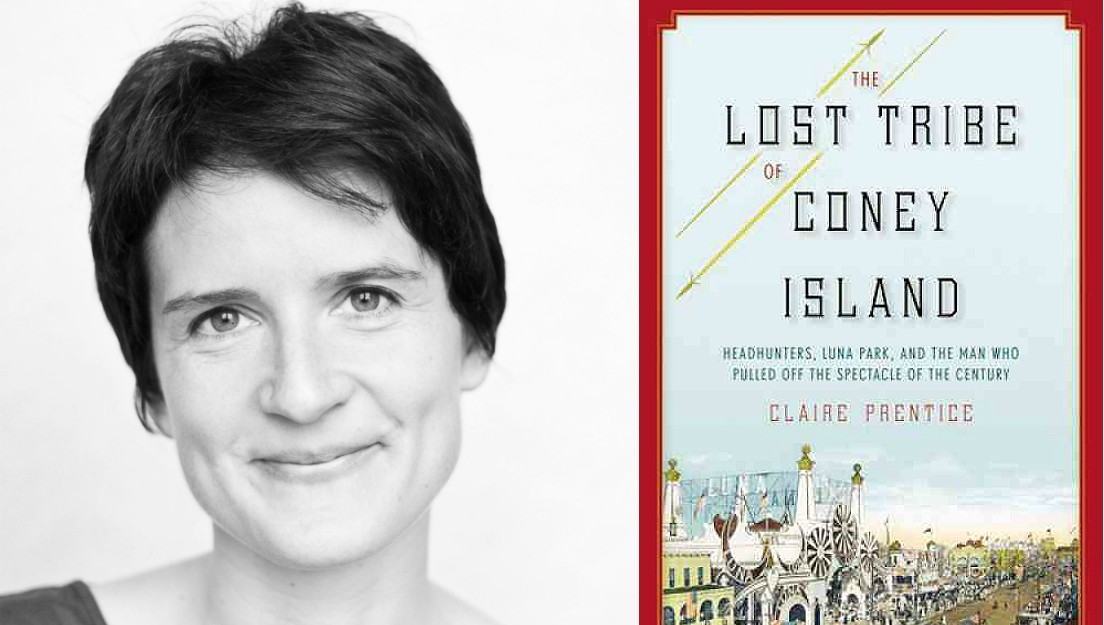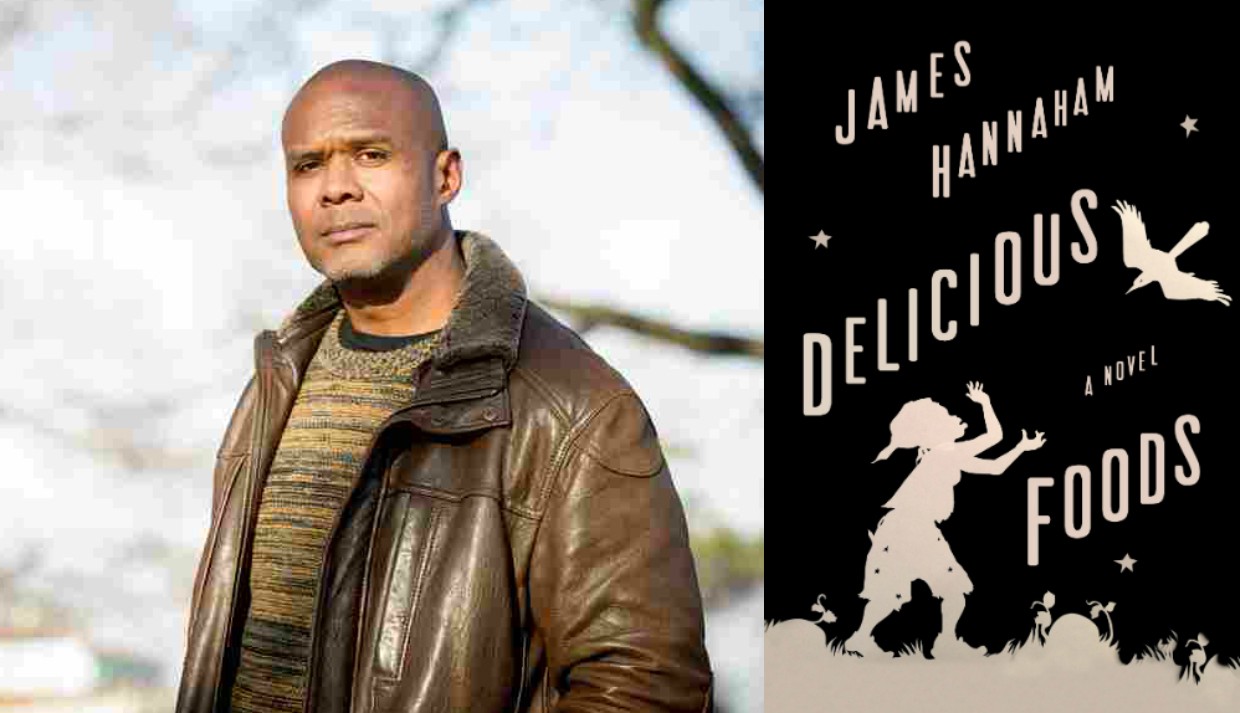interviews
Catching Up With The Eagles Prize Finalists: Claire Prentice, Author Of The Lost Tribe of Coney…
C

This fall marks the inaugural award of the Brooklyn Public Library’s Eagles Prize, recognizing “the best books of the past year and the authors who most embody Brooklyn’s ideals.” Nominations were made by the borough’s bookstores, librarians, and library supporters. The Library announced a shortlist of six authors–three for fiction, three for non-fiction–over the summer. The winners, chosen by a panel of local authors, will be announced later this month. In the lead-up to the announcement, we decided to ask the finalists a few questions.
Next up: Claire Prentice, author of The Lost Tribe of Coney Island: Head-Hunters, Luna Park, and the Man Who Pulled Off the Spectacle of the Century (New Harvest 2015).
Dan Sheehan: The Lost Tribe of Coney Island is such a bizarre, incredible tale with such a larger-than life villain at its center, I was surprised I had never encountered the story before. Where did you first come across this odd nugget of turn-of-the-century American pop-culture history?
Claire Prentice: I love Coney and I visit every chance I get. On a day trip there with my husband and young son I came across an old black and white photo of a group of tribespeople. The minute I set eyes on them, I knew I had to unravel their story and find out who they were. I discovered that they were Bontoc Igorots, a tribe from the remote, mountainous north of the Philippines. In 1905 they had been brought to America by a doctor-turned-showman, Truman Hunt, who put them on display as a human exhibit at Luna Park in Coney Island. They later toured America, exhibiting in more than 50 towns and cities before becoming key witnesses in one of the most scandalous court cases in American history. The more research I did, the more incredible their story became. And no-one had told their story.
DS: Truman Hunt is portrayed as a particularly nefarious character, even for the ethically dubious profession he was in, but as Antoinette Frank, Hunt’s lawyer, said at one of his trials, “The government set the example of exhibiting the people. The government was the first to bring them to this country for show purposes.” Would you consider Hunt a sort of Frankenstein’s monster, the sinister by-product of an American system newly enamored with both colonialism and capitalism?
CP: As a writer, what fascinates me about Truman Hunt is that he is such an ambiguous character. One of the first times his name appears in the public record he is being hailed as a hero, a courageous medical doctor who put his own life on the line during a cholera epidemic in the Philippines and was revered by the Igorots for his leadership, his skills as a doctor, his wisdom and kindness. But by 1906 he is on trial in an American court of law accused of exploiting and abusing the Igorots and stealing their money.
I frequently felt sick to the stomach when…I discovered a shocking new detail about the many wrongs he committed against the Igorots in his group.
Did Truman start out as a good man and get corrupted, or was he always bad beneath his kind, respectable and caring exterior? I frequently felt sick to the stomach when, during my research, I discovered a shocking new detail about the many wrongs he committed against the Igorots in his group. There is also a striking irony to his name. Not only does Truman Hunt become the subject of a true manhunt across the United States, I also felt that my book was a kind of hunt for the true man who lay underneath all the extravagant claims and the sideshow banter.
DS: The late 19th and early 20th century seems to have been a sort of perverse Golden Age for unscrupulous showmen in America. I’m thinking of the less-than-reputable Wild West re-enactments; the enduring popularity of the “Freak Show” tents; and, of course, the degrading ethnological expositions or “human zoos” such as the Igorot Village that Hunt presides over in your book. Why do you think audiences were so hungry for these grotesquely exploitative simulacra during this period?
CP: I think it’s the same impulse that makes people watch reality programs on TV today. Human beings have always hungered for spectacle and excitement. The events in my book are set in a time before mass travel, before radio, TV and movies, and before newspapers routinely carried photographs of world events. But ordinary Americans could visit Coney, where the most extraordinary sights in the world were laid out for them to see, and its most “exotic” inhabitants were on offer if you paid a nickel. This was a place where you could encounter real life Eskimos and Irish Farmers, and where the Igorots became the stars of the show.
DS: In your career as a journalist, you’ve reported on three American presidential elections. While we’re on the subject of scoundrels, hucksters, and sideshow oddities, how are you enjoying the Republican Primary debates so far?
CP: Ha! I can think of at least one character in the debates who would feel very at home in the Coney Island of 1905!
DS: For many New Yorkers, and Brooklynites in particular, Coney Island holds a special, romantic place in the imagination. Why do you think this is?
It’s still a wonderful, romantic place. I especially enjoy visiting out of season when it has a delightfully melancholy air.
CP: I’m from Scotland and it holds a very special place in my imagination, too. There’s something magical about Coney Island, especially the Coney Island of the early 20th century. It was a place where people went to dream, to escape the daily grind, and where anything was possible. You could take a simulated Trip to the Moon, visit attractions which offered a glimpse of Heaven and Hell, you could see the ten ton lady and the ten inch man, you could ride a camel, take a trip on a gondola in a miniature recreation of Venice, see tribespeople from distant lands, and watch a huge scale reenactment of the Boer War featuring actual veterans. It’s still a wonderful, romantic place. I especially enjoy visiting out of season when it has a delightfully melancholy air.









